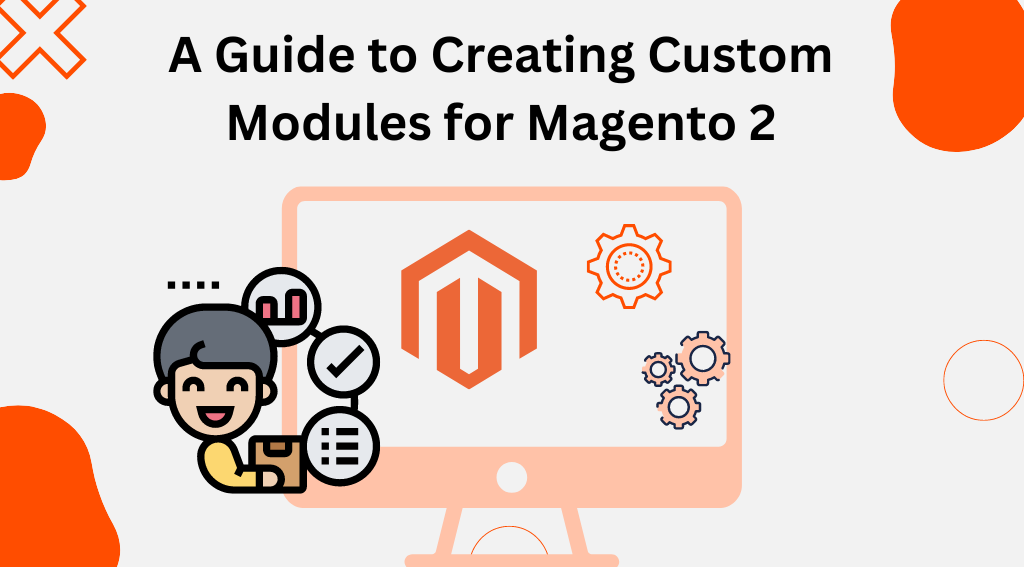Magento is a popular open-source e-commerce platform that powers some of the biggest online stores in the world. One of the most significant advantages of Magento is the ability to customize and extend the platform with custom modules.
Magento Custom Extension Development has become essential to building successful e-commerce websites that meet the unique needs of businesses and their customers. In this article, we will explore the Module and the benefits it can bring to your online store.
What Is Magento Custom Module Development?
Magento Custom Module Development refers to creating a custom module that extends the functionality of the Magento platform. A module is a set of files that contain code to add new features to the Magento platform.
Custom modules can be created to add new functionality, modify existing functionality, or integrate third-party services. It is a complex process that requires advanced programming skills and knowledge of the Magento platform.
However, the benefits of custom modules include enhanced functionality, improved performance, and increased flexibility. Magento 2 is the latest version of the Magento platform, and it offers many new features and improvements over the previous version.
Magento 2 Custom Module Development differs from Magento 1 Custom Development, as Magento 2 uses a new modular structure that allows for better organization and management of custom modules.
It follows the Model-View-Controller (MVC) architecture pattern, which separates the code into three distinct layers: Model, View, and Controller. This separation of concerns makes developing, maintaining, and testing custom modules easier.
Steps To Custom Module Development In Magento
It involves several steps: planning, development, testing, and deployment. Let's take a look at each of these steps in more detail.
Step 1: Planning
The first step in Custom Module Development in Magento is planning. It involves defining the requirements of the custom module, including the functionality it needs to provide, the data it needs to store, and the user interface it needs to offer.
It is also essential to plan the structure of the custom module, including the files and directories that will be created and the dependencies it will have on other modules or services. It is the most crucial step in the development of this module.
Step 2: Development
The next step in this process is development. It involves creating the files and directories for the custom module and writing the code that implements the desired functionality. Developers should follow Magento coding standards and best practices when developing custom modules.
It includes using object-oriented programming (OOP) principles, using the Magento 2 framework, and following the Magento coding style guide. This step will decide the performance of your store in the near future.
Step 3: Testing
After the custom module has been developed, it is essential to test it thoroughly to ensure it works as expected. It involves testing the functionality of the custom module, testing its compatibility with other modules and services.
Its performance is also tested under various load conditions. Magento provides several testing tools and frameworks that developers can use to test their custom modules, including PHPUnit, Codeception, and Selenium.
Step 4: Deployment
The final step in Magento Custom Development is deployment. It involves packaging the custom module into a module package file, which can be installed on the Magento platform. Magento 2 provides a command-line interface (CLI) tool.
It is called the Magento 2 Command-Line Interface (CLI) that developers can use to package and deploy their custom modules. At Webiators Technologies we help you throughout all these steps in the custom module development.
Benefits Of Magento Custom Extension Development
-
Enhanced Functionality
Custom modules can add new features and functionality to the Magento platform that are not available out of the box. It can help businesses meet the unique needs of their customers and differentiate themselves from their competitors.
-
Improved Performance
Custom modules can be optimized to improve the performance of the Magento platform. It can help businesses reduce page load times, increase site speed, and provide a better user experience for their customers.
-
Increased Flexibility
Custom modules can be tailored to the specific needs of a business, providing increased flexibility and customization options. It can help businesses adapt to changing market conditions and customer needs.
-
Better Integration
Custom modules can be integrated with third-party services like payment gateways, shipping providers, and marketing tools. It can help businesses streamline operations, reduce costs, and improve customer experience.
Conclusion
Magento Custom Extension Development is essential to building successful e-commerce websites that meet the unique needs of businesses and their customers. Magento 2 Custom Module follows the Model-View-Controller (MVC) architecture pattern.
It involves several steps: planning, development, testing, and deployment. Custom modules offer many benefits, including enhanced functionality, improved performance, increased flexibility, and better integration.
If you want to build a successful e-commerce website with Magento, consider investing in custom module development at Webistors Technologies to give your business a competitive edge.









Please complete your information below to login.
Sign In
Create New Account